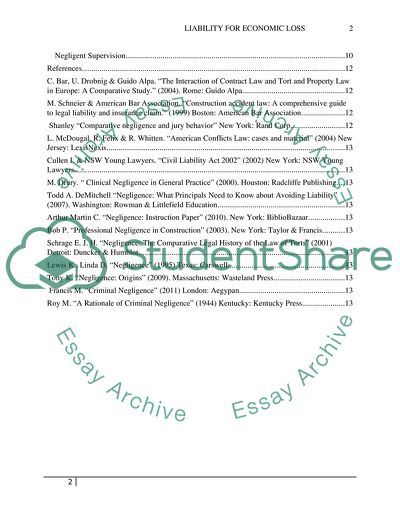Cite this document
(Liability for Economic Loss Report Example | Topics and Well Written Essays - 2250 words, n.d.)
Liability for Economic Loss Report Example | Topics and Well Written Essays - 2250 words. https://studentshare.org/law/1760430-negligence
Liability for Economic Loss Report Example | Topics and Well Written Essays - 2250 words. https://studentshare.org/law/1760430-negligence
(Liability for Economic Loss Report Example | Topics and Well Written Essays - 2250 Words)
Liability for Economic Loss Report Example | Topics and Well Written Essays - 2250 Words. https://studentshare.org/law/1760430-negligence.
Liability for Economic Loss Report Example | Topics and Well Written Essays - 2250 Words. https://studentshare.org/law/1760430-negligence.
“Liability for Economic Loss Report Example | Topics and Well Written Essays - 2250 Words”. https://studentshare.org/law/1760430-negligence.


